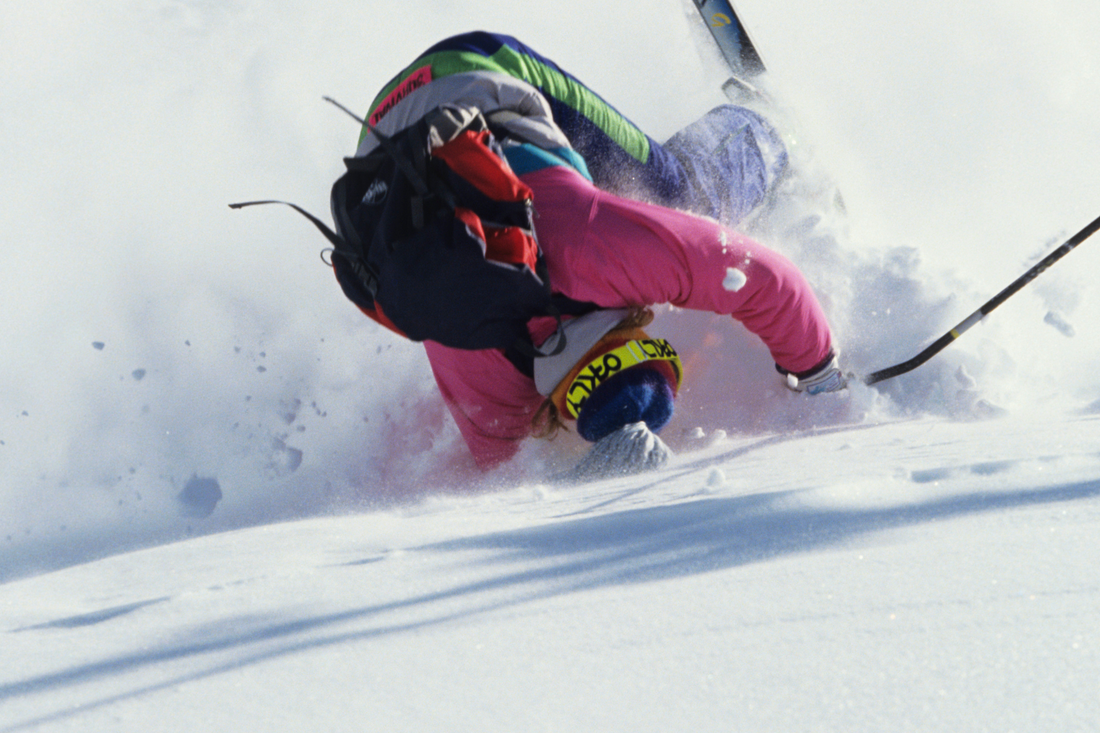Wearing a ski helmet is not compulsory in all winter sports countries. However, since the introduction of the ski helmet, the number of accidents with serious head injuries has been significantly reduced. Moreover, a ski helmet is also incredibly comfortable. The strap of your goggles doesn't pinch your head, it is nice and warm and not too hot thanks to ventilation. These days, you are more likely to be looked at strangely if you ski without a helmet than with one! Every year, many discussions flare up about whether or not wearing a ski helmet should be obligatory. For example, after a severe accident with injuries. Below you can read about the rules regarding wearing a helmet in a range of countries.
Canada and the USA: a helmet is not compulsory.
Andorra: Not compulsory, but strongly recommended. Mandatory when skiing off-piste.
Austria: In Austria, only seven of nine federal states enforce helmet requirements— for children up to 15 —with Tyrol and Vorarlberg notably opting out. If you go to these states without a helmet, the ski school may require it anyway. There is no ski helmet requirement for adults, but it is strongly recommended.
France: Not mandatory by law, but highly recommended. Ski schools may enforce helmet use for children. Since Michael Schumacher’s horrific crash in Méribel, helmet usage in France has increased dramatically.
Germany: The recommendation by the German Ski Association and German Ski Instructor Association is always to wear a ski helmet. There is no legal obligation to wear helmets on the slopes, although some resorts, like Oberstdorf Kleinwalsertal, strongly recommend them.
Italy: Italy is the first ski country in the world to make the wearing of a ski helmet mandatory for all skiers and snowboarders, regardless of age, from the 2025-26 winter season onwards. Prior to this, it was only compulsory for minors. Fines of up to €200 and ski pass confiscation may be imposed for non-compliance from November 2025. This also applies to those sledding and tobogganing within resorts. It needs to be a CE-certified helmet that meets European safety standards.
“All health and safety measures are a good development as skiing is inherently dangerous and is practised in an environment with dangers,” said the Ski School Manager of the Supreme Ski & Snowboard School, James Salomoni, who grew up in the Italian resort of Sauze d’Oulx. The company currently runs ski instructor training courses in Sauze d’Oulx.
“The season is still quite far away so it’s not been released and reported widely for that reason.”
Representatives of the FISI (Italian Winter Sports Federation) and Dolomiti Superski have welcomed the rule noting that most adult skiers already wear helmets.
“It is long overdue and all people on our courses across the mountains are required to wear a ski helmet,” said Warren Smith, from the Warren Smith Ski Academy to PlanetSKI.
Norway: a ski helmet is not compulsory, but safe skiing is considered extremely important. Children can often hire a ski helmet for free, sometimes even with a free ski pass.
Poland: a ski helmet is compulsory for children up to 16 years of age. Not wearing a helmet can result in the confiscation of a ski pass and a fine.
Slovakia: a ski helmet is compulsory for children up to the age of 15
Slovenia and Croatia:a ski helmet is compulsory for children up to 14 years. Not wearing a helmet can result in a fine.
Spain: a ski helmet is not compulsory but strongly recommended. Are you going off-piste? Then you must wear a helmet.
Sweden: a helmet is not obligatory, but children are turned away at some lifts without helmets.
Switzerland: Helmet requirement is not mandatory, but research has shown that the voluntary use of helmet wearers is highest here.
Thoughts 10 Years After Michael Schumacher’s Ski Accident
Another related amendment strengthens the emergency response infrastructure at Italian ski resorts. Municipalities will be required to designate at least one marked area for rescue vehicles, including space for ambulances and regional air ambulances (118 services). Additionally, every ski facility must now be equipped with at least one automated external defibrillator (AED).
Italy’s push to reduce injuries and fatalities in winter sports may influence other nations to follow suit and improve safety for everyone across European resorts.
General recommendations
Always wear a helmet: Even where not legally required, it's strongly advised to wear a helmet to minimize the risk of serious head injuries.
Check with ski schools: Many ski schools, regardless of the country's laws, mandate helmets for children participating in lessons.
Insurance policies: Some travel insurance policies may require you to wear a helmet on the slopes for cover to be valid.
Off-piste skiing: Always wear a helmet when venturing off-piste.
Acknowledgements: Snow Brains, PlanetSKI, Snow Plaza

